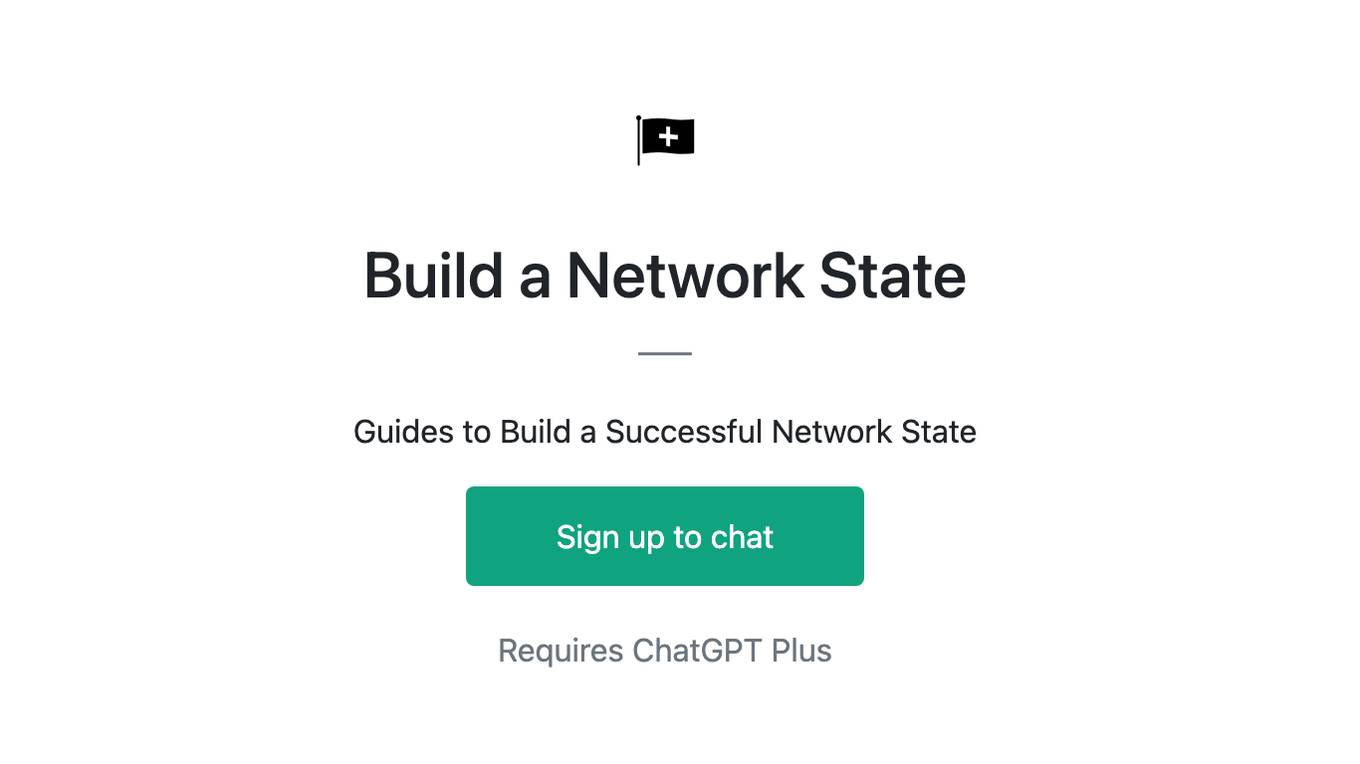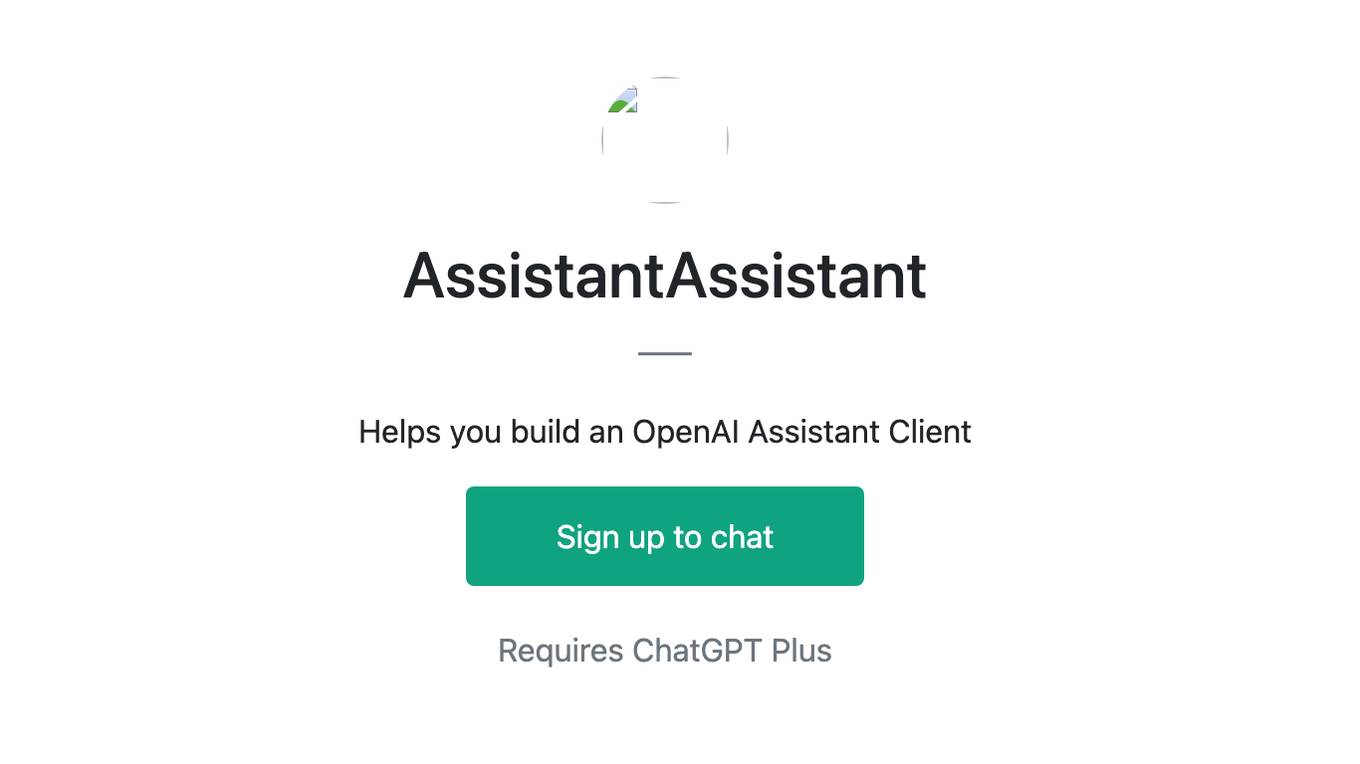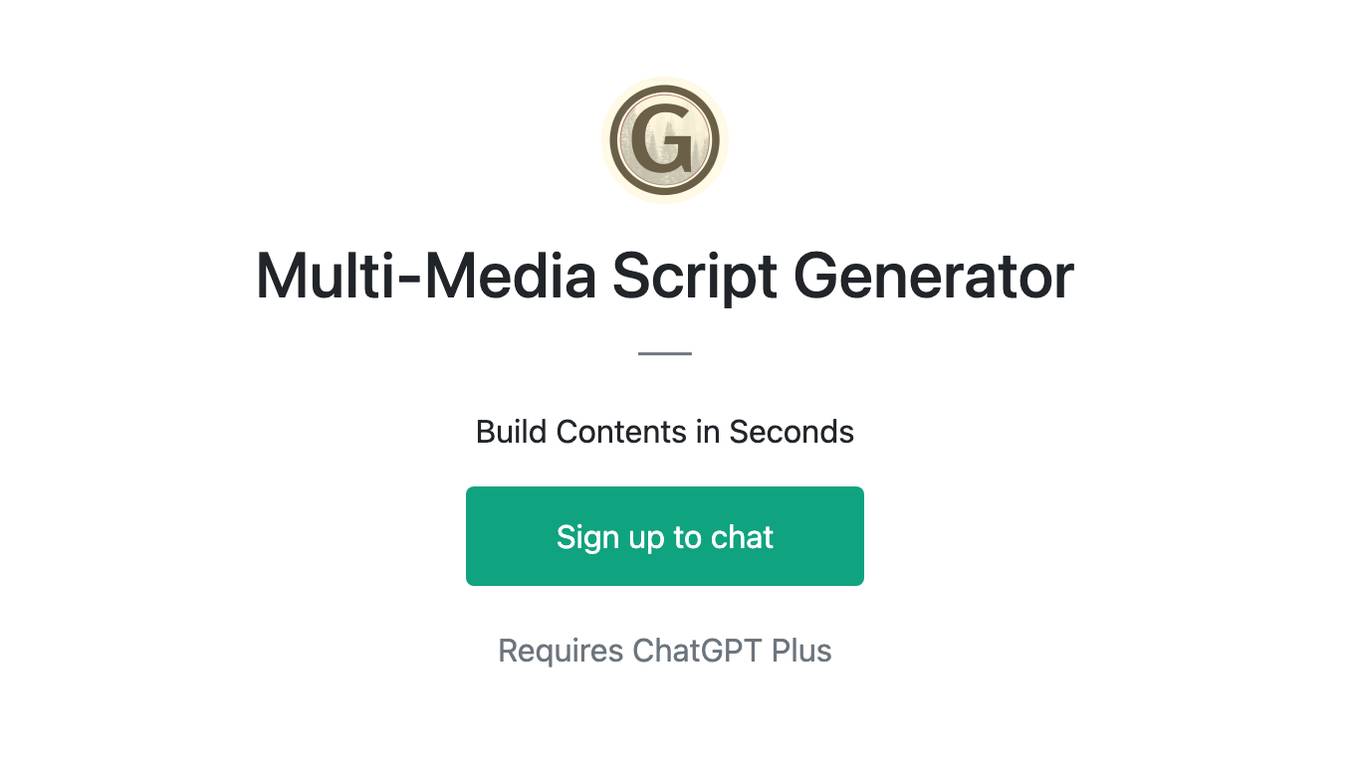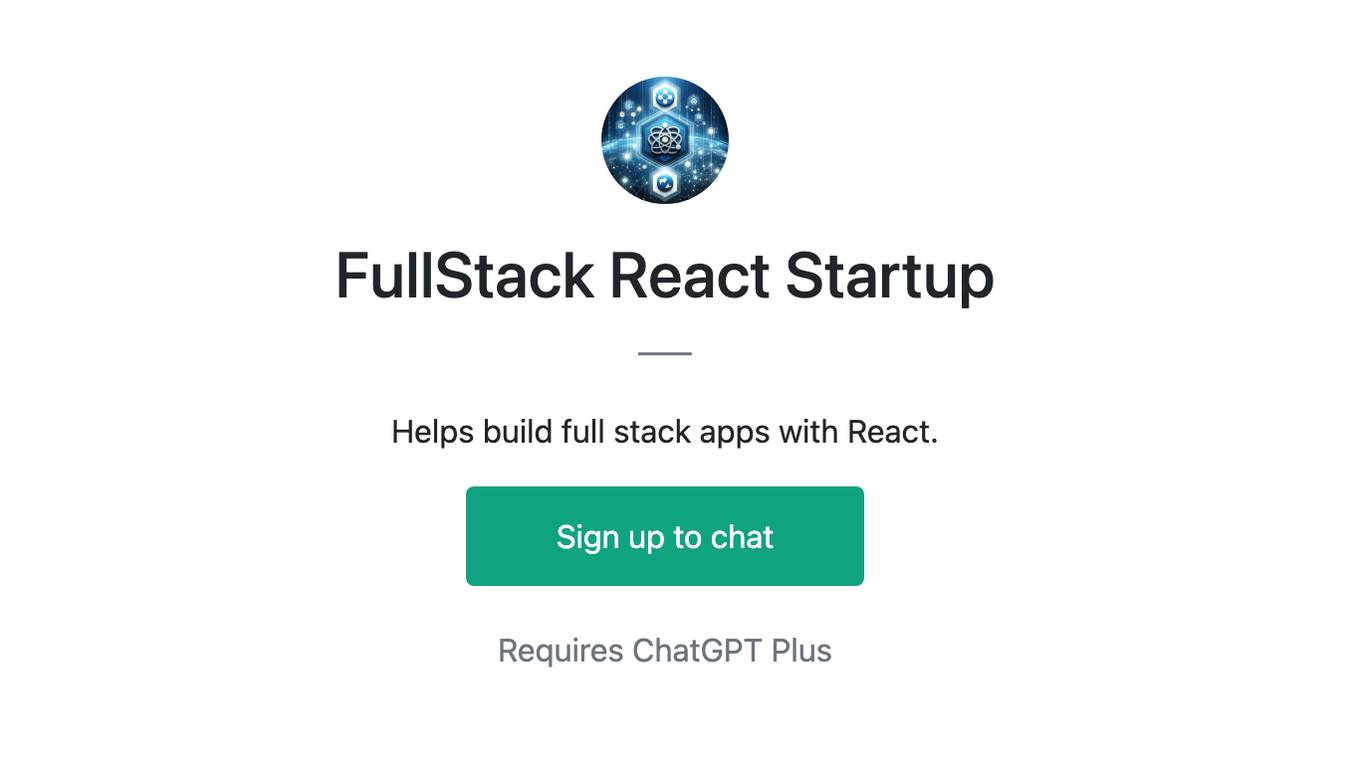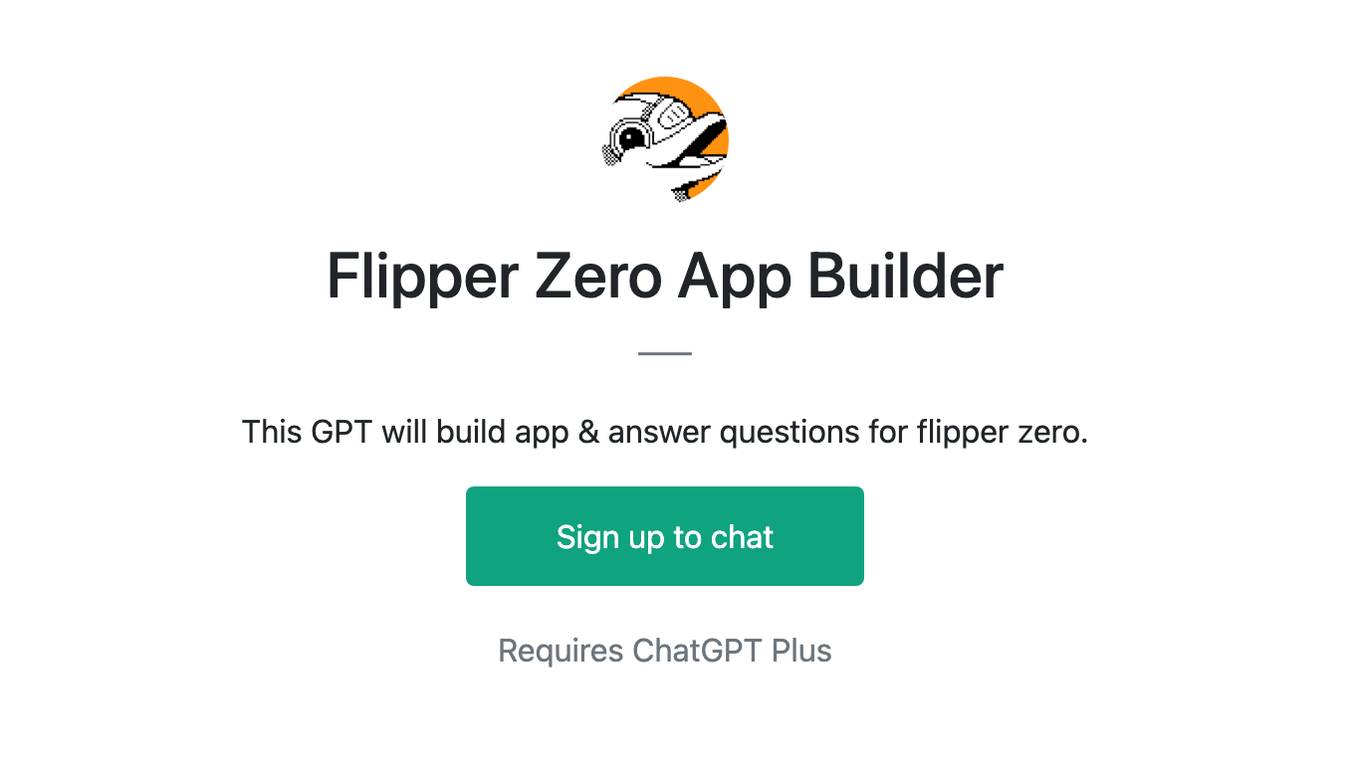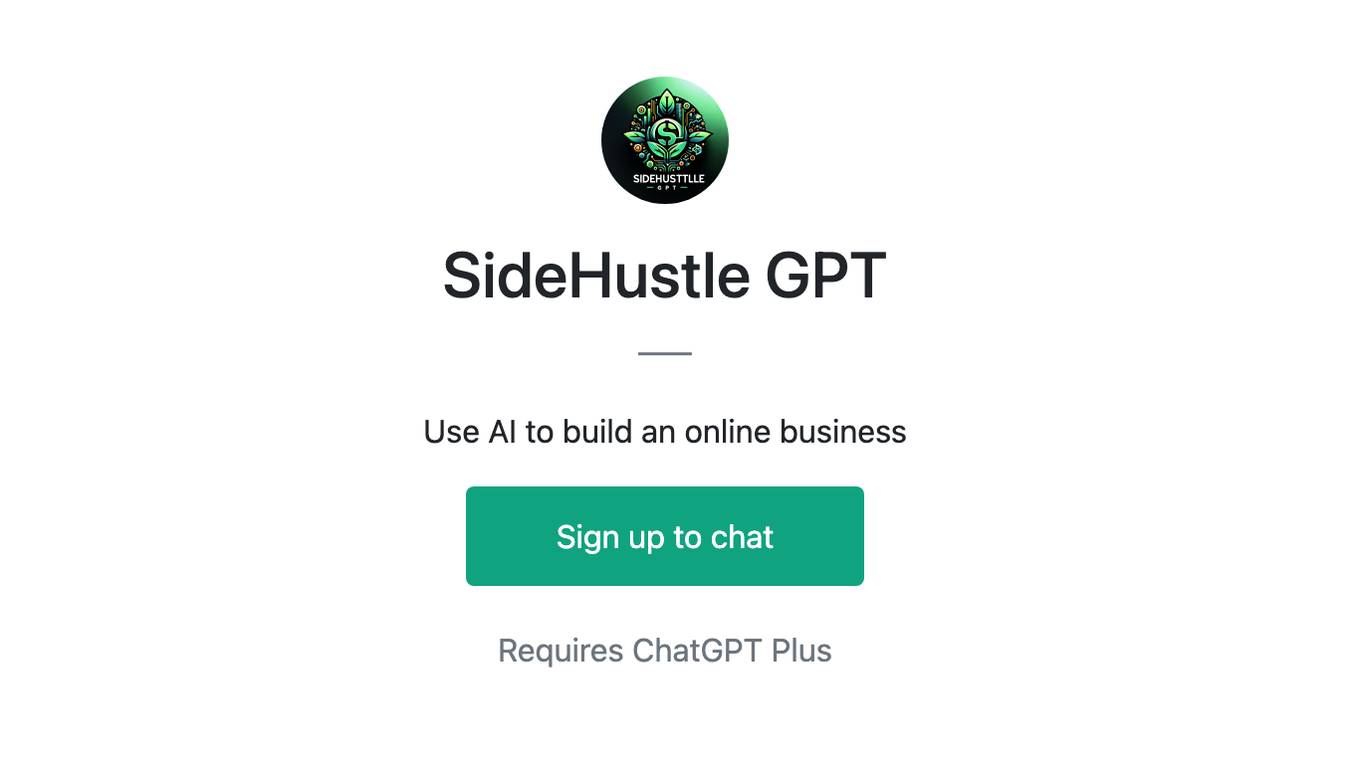Best AI tools for< Build Classifier >
20 - AI tool Sites
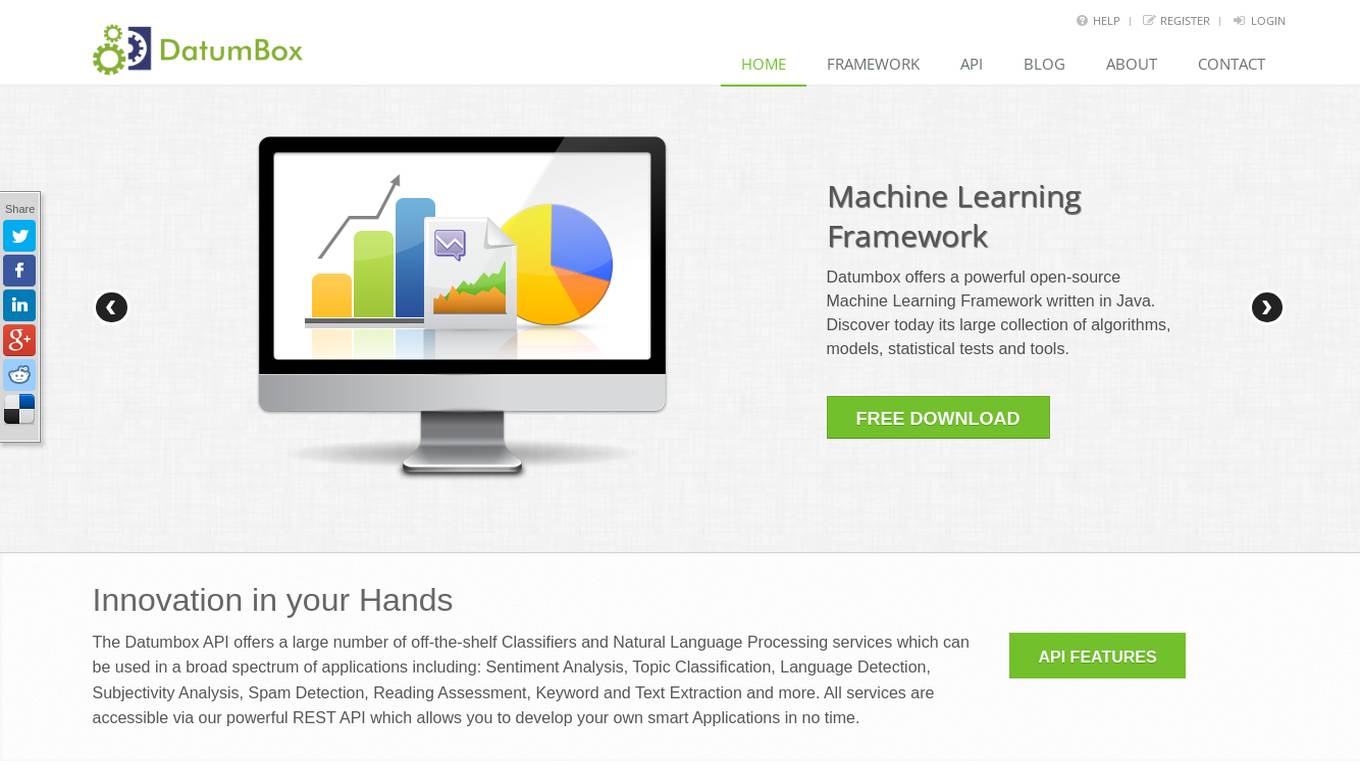
Datumbox
Datumbox is a machine learning platform that offers a powerful open-source Machine Learning Framework written in Java. It provides a large collection of algorithms, models, statistical tests, and tools to power up intelligent applications. The platform enables developers to build smart software and services quickly using its REST Machine Learning API. Datumbox API offers off-the-shelf Classifiers and Natural Language Processing services for applications like Sentiment Analysis, Topic Classification, Language Detection, and more. It simplifies the process of designing and training Machine Learning models, making it easy for developers to create innovative applications.
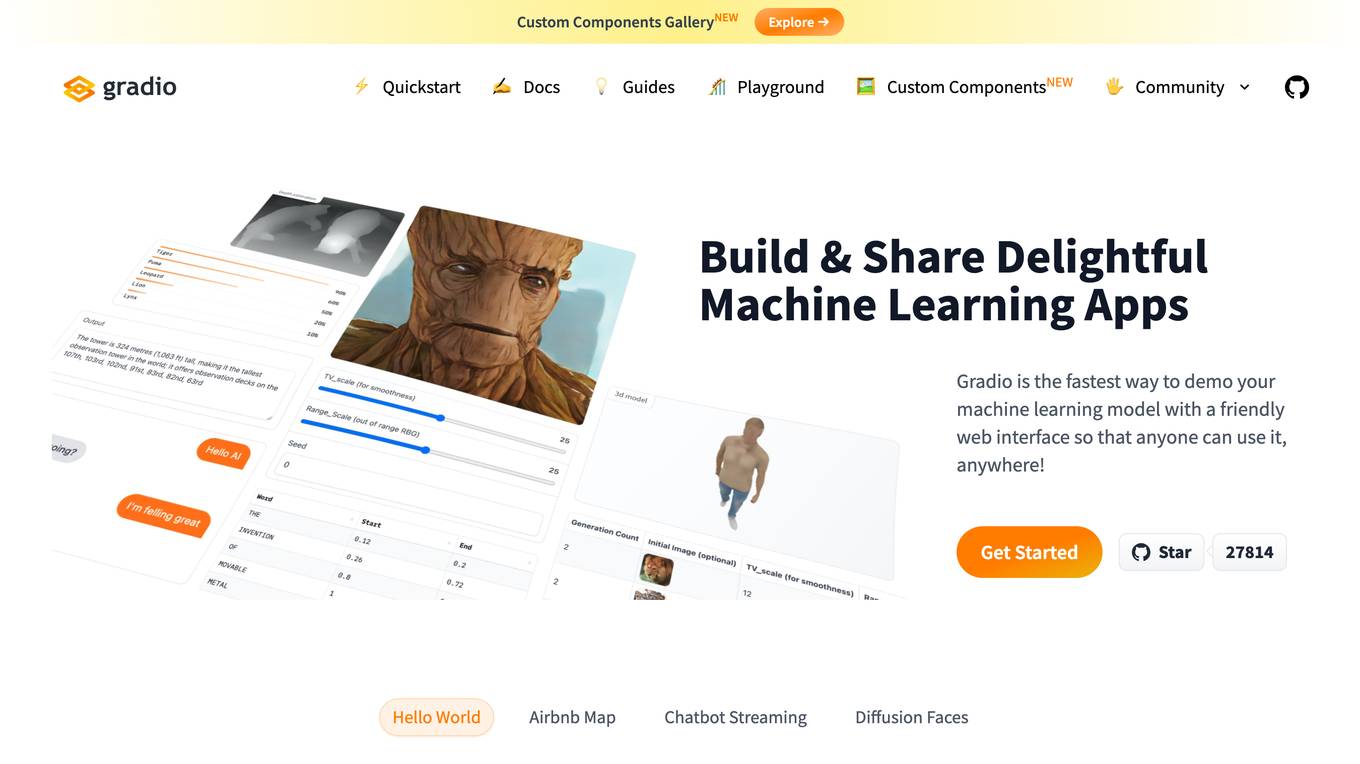
Gradio
Gradio is a tool that allows users to quickly and easily create web-based interfaces for their machine learning models. With Gradio, users can share their models with others, allowing them to interact with and use the models remotely. Gradio is easy to use and can be integrated with any Python library. It can be used to create a variety of different types of interfaces, including those for image classification, natural language processing, and time series analysis.
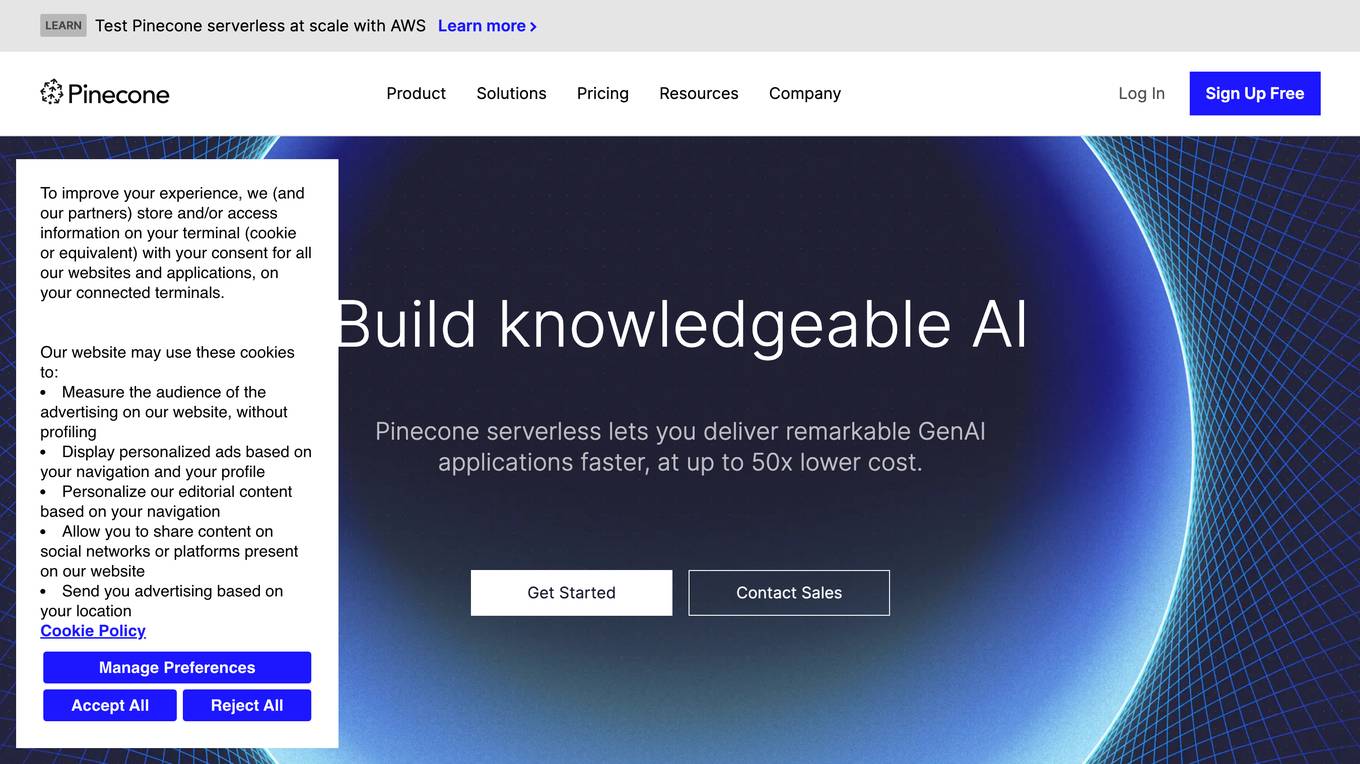
Pinecone
Pinecone is a vector database that helps power AI for the world's best companies. It is a serverless database that lets you deliver remarkable GenAI applications faster, at up to 50x lower cost. Pinecone is easy to use and can be integrated with your favorite cloud provider, data sources, models, frameworks, and more.
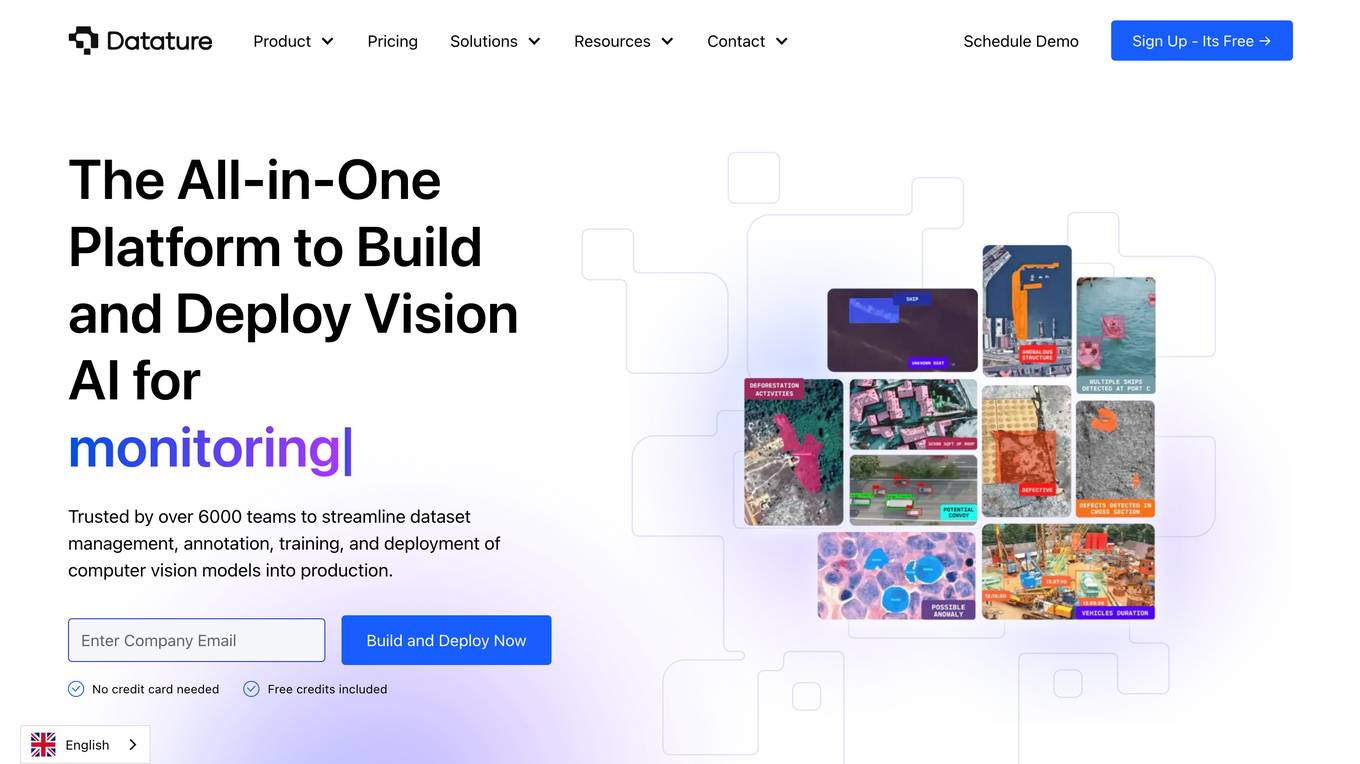
Datature
Datature is an all-in-one platform for building and deploying computer vision models. It provides tools for data management, annotation, training, and deployment, making it easy to develop and implement computer vision solutions. Datature is used by a variety of industries, including healthcare, retail, manufacturing, and agriculture.
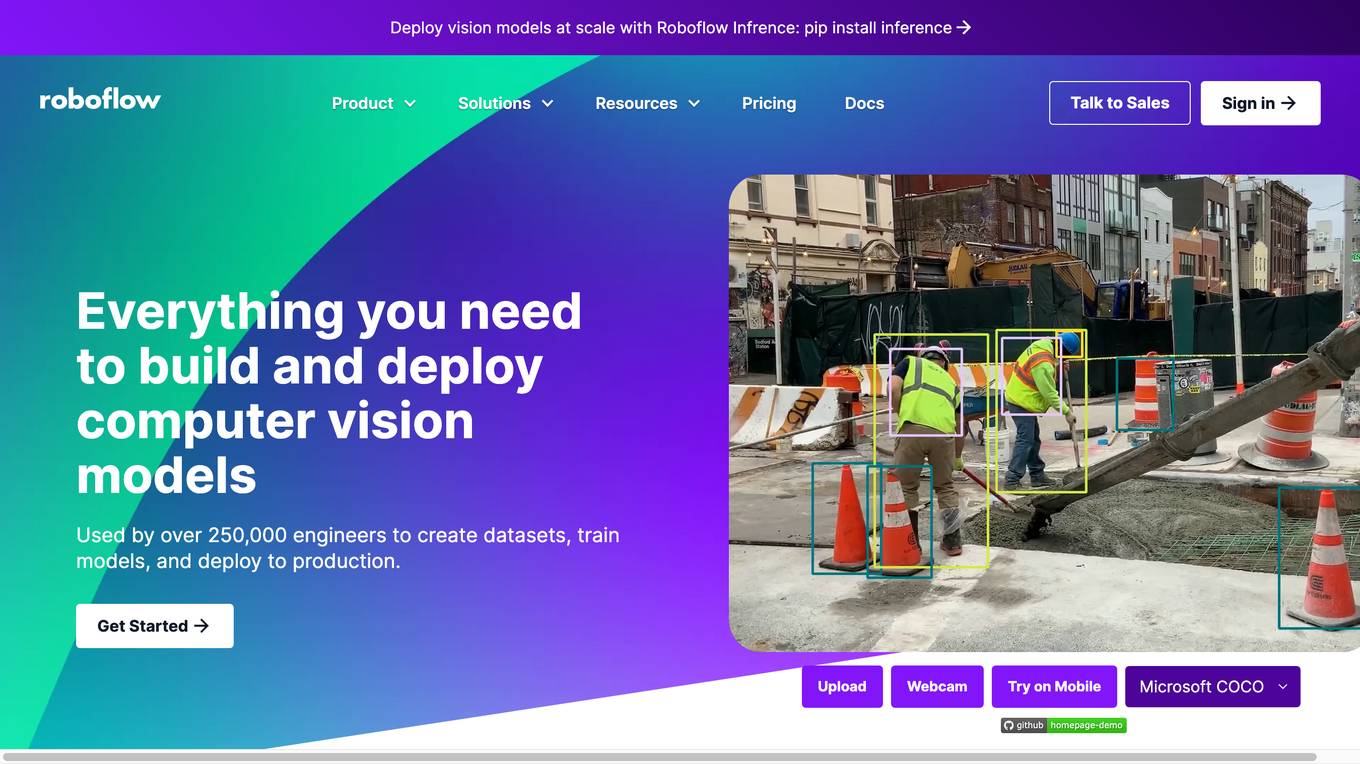
Roboflow
Roboflow is a platform that provides tools for building and deploying computer vision models. It offers a range of features, including data annotation, model training, and deployment. Roboflow is used by over 250,000 engineers to create datasets, train models, and deploy to production.

FranzAI LLM Playground
FranzAI LLM Playground is an AI-powered tool that helps you extract, classify, and analyze unstructured text data. It leverages transformer models to provide accurate and meaningful results, enabling you to build data applications faster and more efficiently. With FranzAI, you can accelerate product and content classification, enhance data interpretation, and advance data extraction processes, unlocking key insights from your textual data.
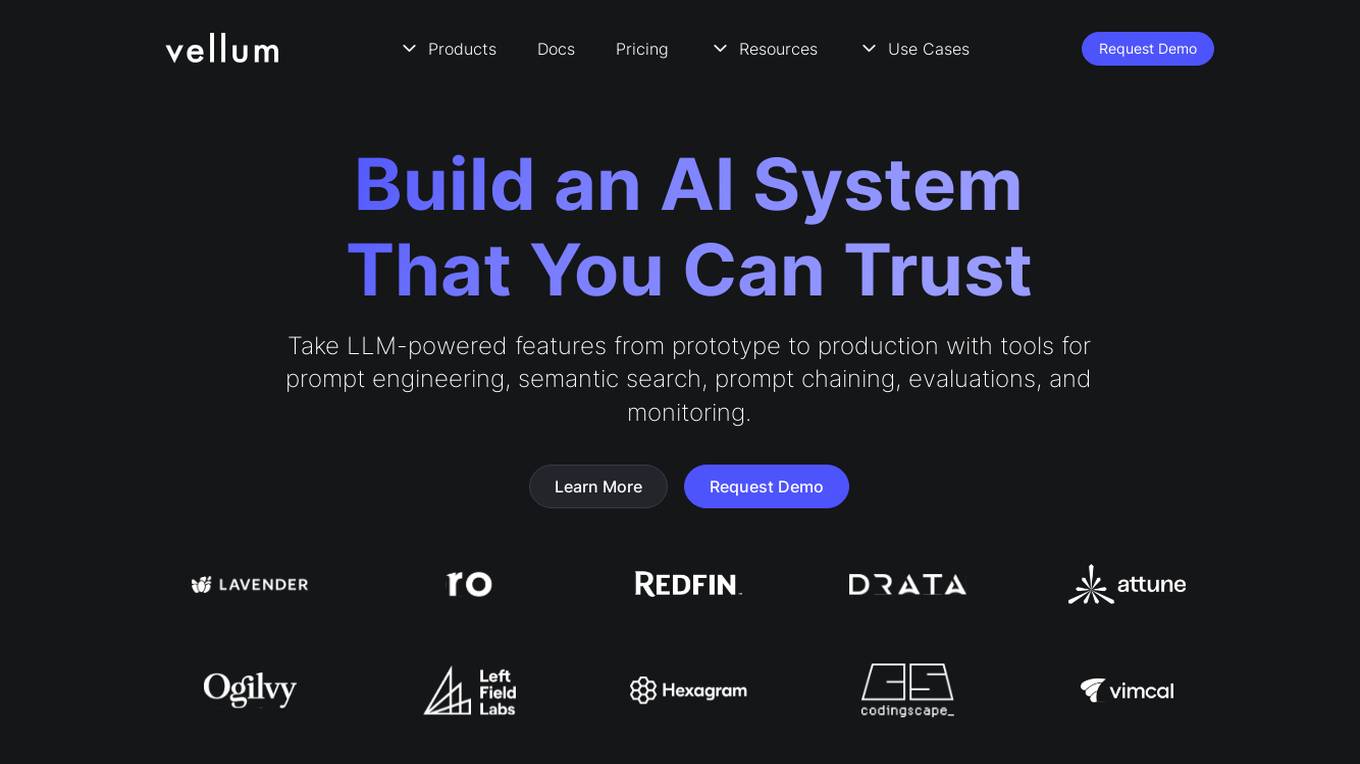
Vellum AI
Vellum AI is an AI platform that supports using Microsoft Azure hosted OpenAI models. It offers tools for prompt engineering, semantic search, prompt chaining, evaluations, and monitoring. Vellum enables users to build AI systems with features like workflow automation, document analysis, fine-tuning, Q&A over documents, intent classification, summarization, vector search, chatbots, blog generation, sentiment analysis, and more. The platform is backed by top VCs and founders of well-known companies, providing a complete solution for building LLM-powered applications.
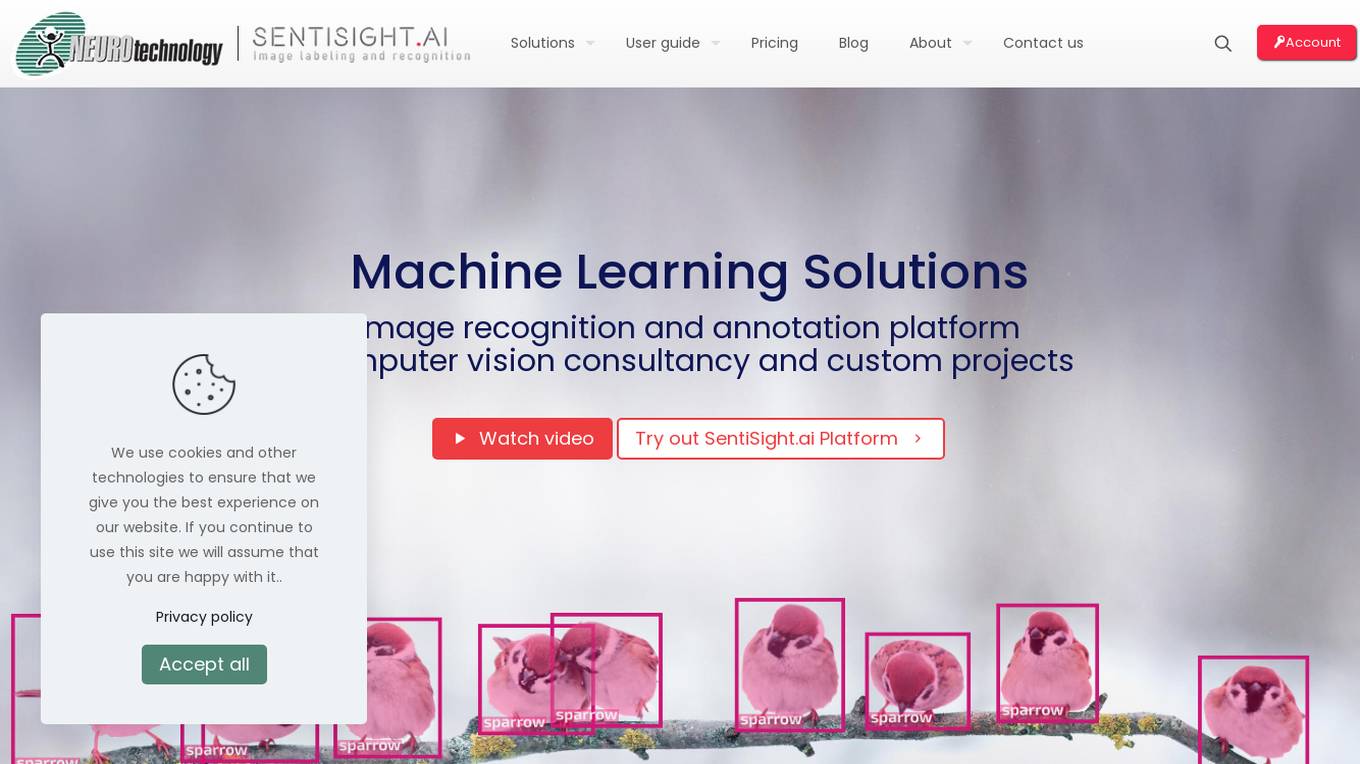
SentiSight.ai
SentiSight.ai is a machine learning platform for image recognition solutions, offering services such as object detection, image segmentation, image classification, image similarity search, image annotation, computer vision consulting, and intelligent automation consulting. Users can access pre-trained models, background removal, NSFW detection, text recognition, and image recognition API. The platform provides tools for image labeling, project management, and training tutorials for various image recognition models. SentiSight.ai aims to streamline the image annotation process, empower users to build and train their own models, and deploy them for online or offline use.
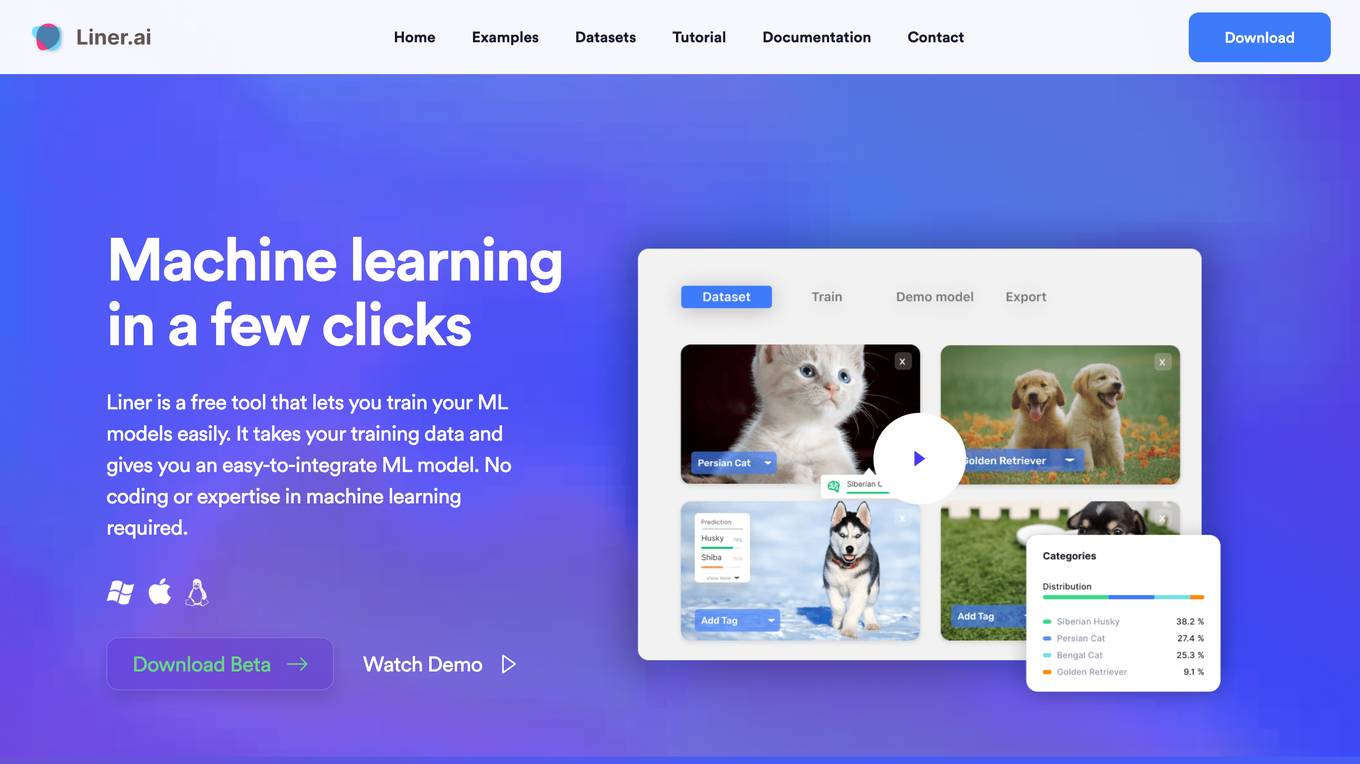
Liner.ai
Liner is a free and easy-to-use tool that allows users to train machine learning models without writing any code. It provides a user-friendly interface that guides users through the process of importing data, selecting a model, and training the model. Liner also offers a variety of pre-trained models that can be used for common tasks such as image classification, text classification, and object detection. With Liner, users can quickly and easily create and deploy machine learning applications without the need for specialized knowledge or expertise.

TensorFlow
TensorFlow is an end-to-end platform for machine learning. It provides a wide range of tools and resources to help developers build, train, and deploy ML models. TensorFlow is used by researchers and developers all over the world to solve real-world problems in a variety of domains, including computer vision, natural language processing, and robotics.

Meta AI
Meta AI is a research lab dedicated to advancing the field of artificial intelligence. Our mission is to build foundational AI technologies that will solve some of the world's biggest challenges, such as climate change, disease, and poverty.
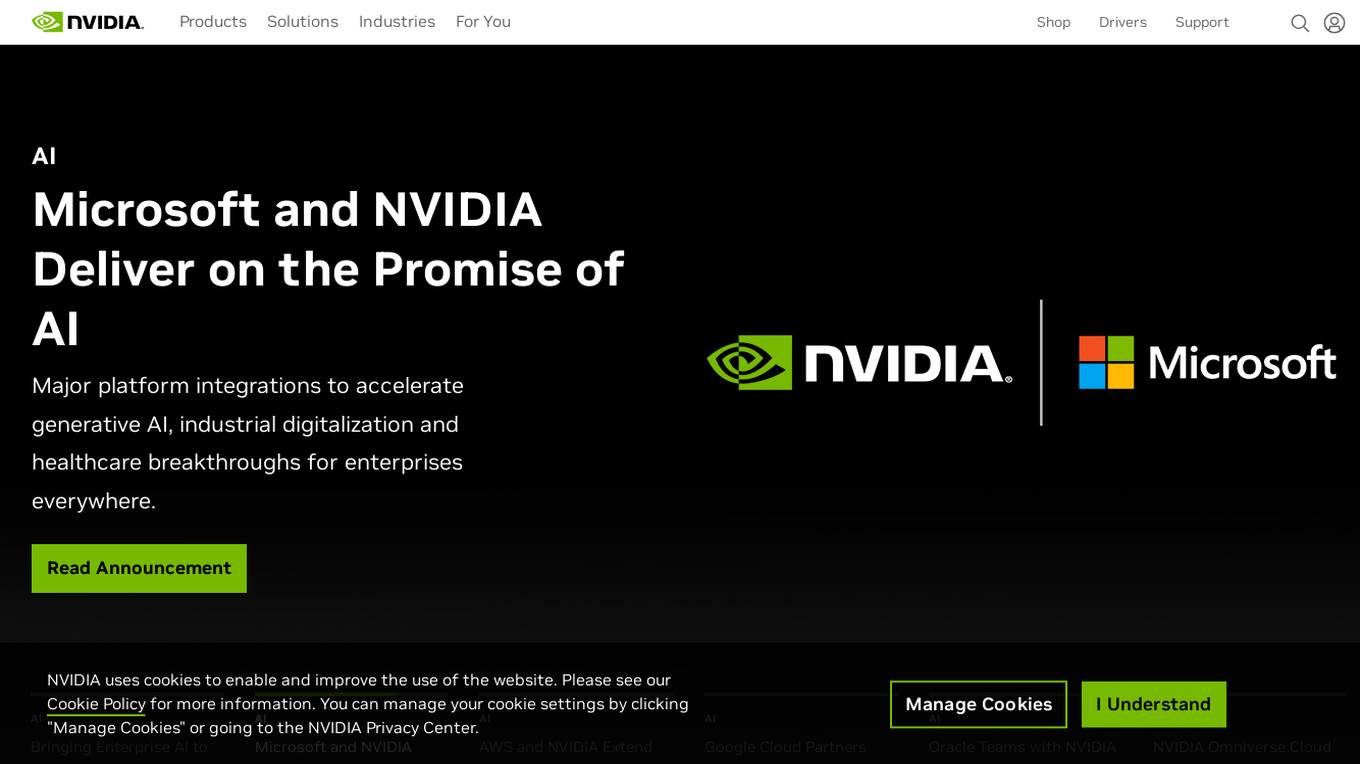
NVIDIA
NVIDIA is a world leader in artificial intelligence computing. The company's products and services are used by businesses and governments around the world to develop and deploy AI applications. NVIDIA's AI platform includes hardware, software, and tools that make it easy to build and train AI models. The company also offers a range of cloud-based AI services that make it easy to deploy and manage AI applications. NVIDIA's AI platform is used in a wide variety of industries, including healthcare, manufacturing, retail, and transportation. The company's AI technology is helping to improve the efficiency and accuracy of a wide range of tasks, from medical diagnosis to product design.
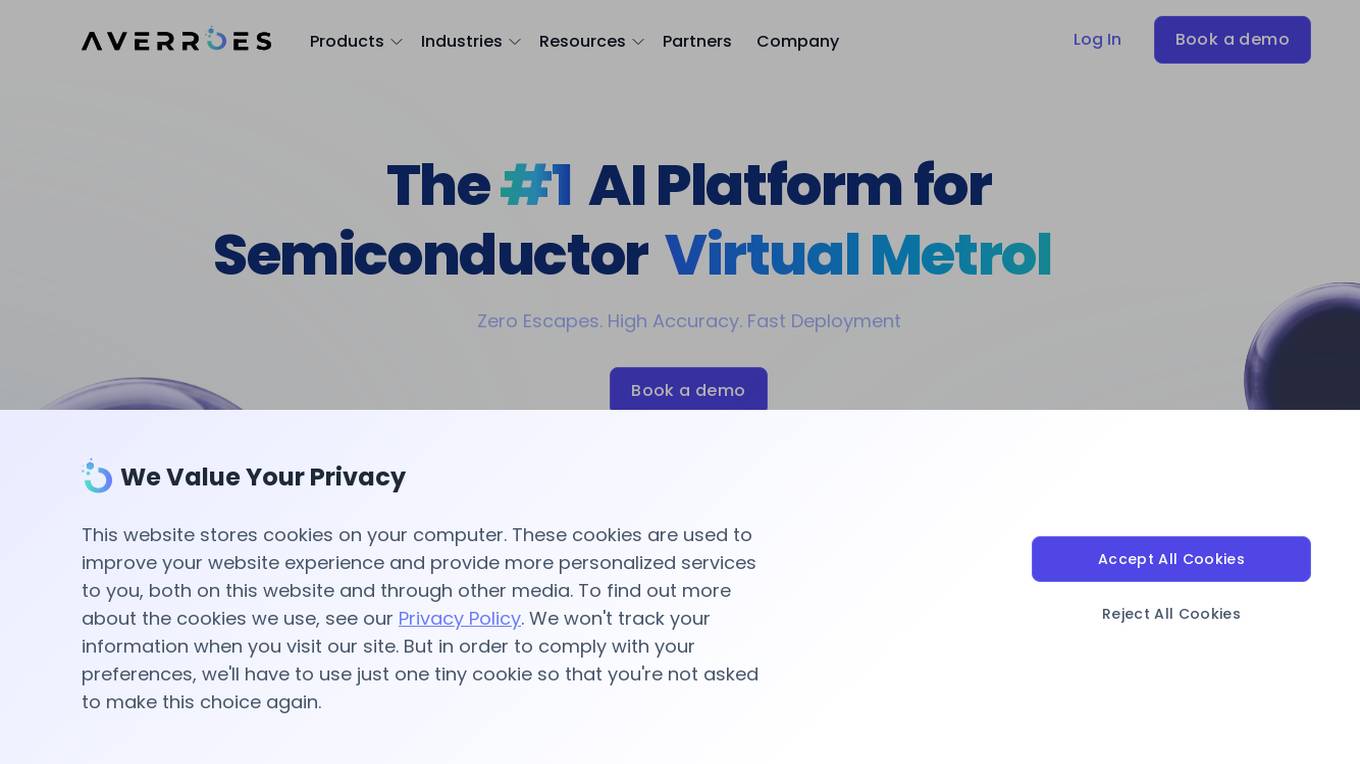
Averroes
Averroes is the #1 AI Automated Visual Inspection Software designed for various industries such as Oil and Gas, Food and Beverage, Pharma, Semiconductor, and Electronics. It offers an end-to-end AI visual inspection platform that allows users to effortlessly train and deploy custom AI models for defect classification, object detection, and segmentation. Averroes provides advanced solutions for quality assurance, including automated defect classification, submicron defect detection, defect segmentation, defect review, and defect monitoring. The platform ensures labeling consistency, offers flexible deployment options, and has shown remarkable improvements in defect detection and productivity for semiconductor OEMs.
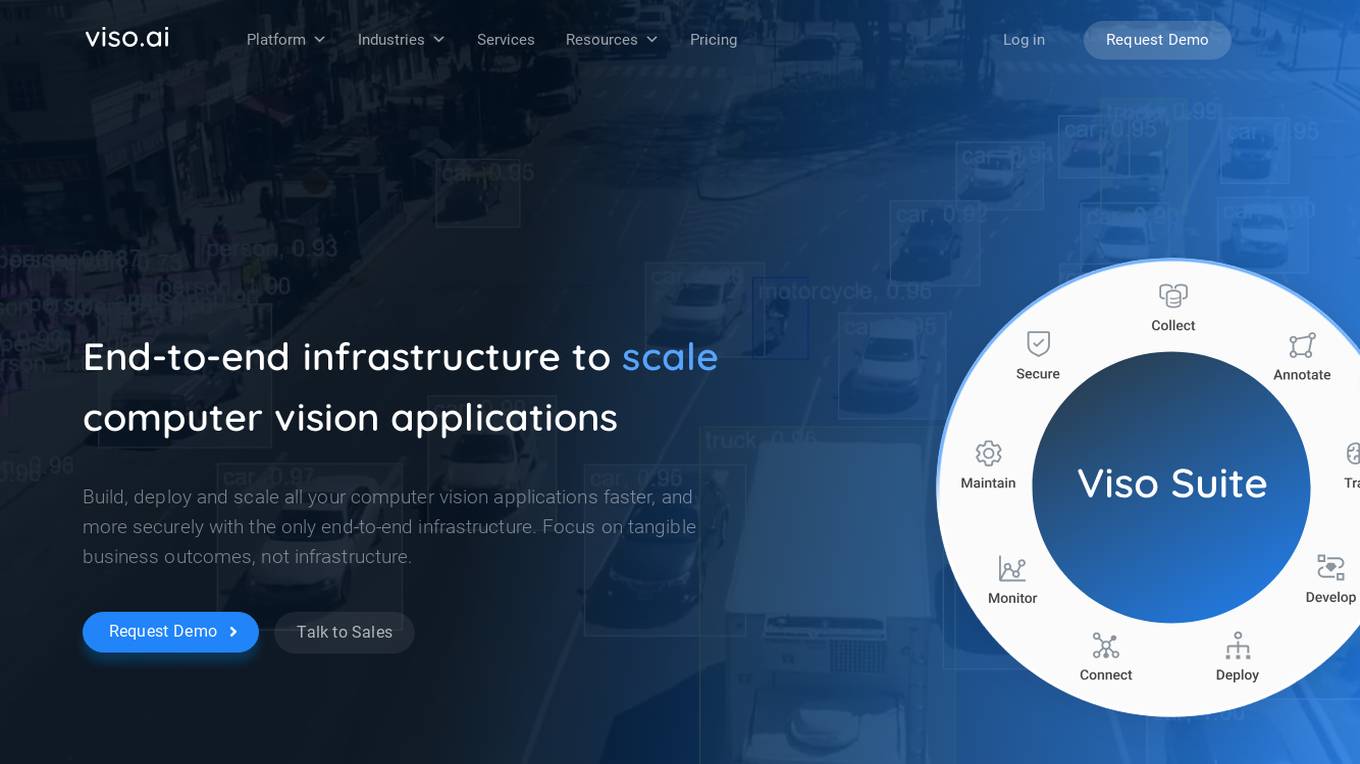
Viso Suite
Viso Suite is a no-code computer vision platform that enables users to build, deploy, and scale computer vision applications. It provides a comprehensive set of tools for data collection, annotation, model training, application development, and deployment. Viso Suite is trusted by leading Fortune Global companies and has been used to develop a wide range of computer vision applications, including object detection, image classification, facial recognition, and anomaly detection.
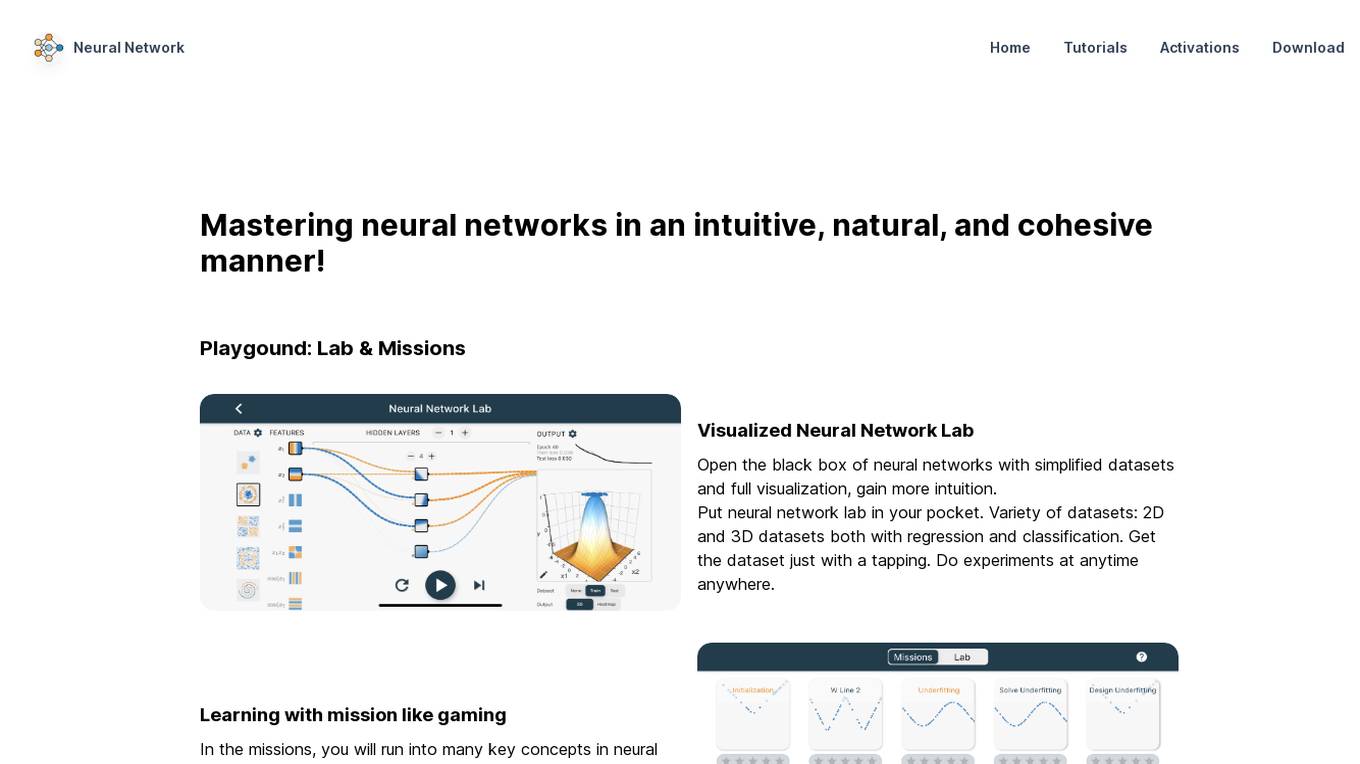
Neural Network Playground
The website offers interactive tutorials on neural networks and deep learning, providing a comprehensive platform for mastering neural networks in an intuitive, natural, and cohesive manner. Users can access a visualized neural network lab with simplified datasets, a variety of 2D and 3D datasets for regression and classification, and interactive missions to deepen understanding. The platform also features intuitive tutorials, well-visualized neural network knowledge with charts and animations, and a visual deep learning model editor for efficient model building. Overall, it aims to enhance learning and understanding of neural networks through interactive and visual tools.
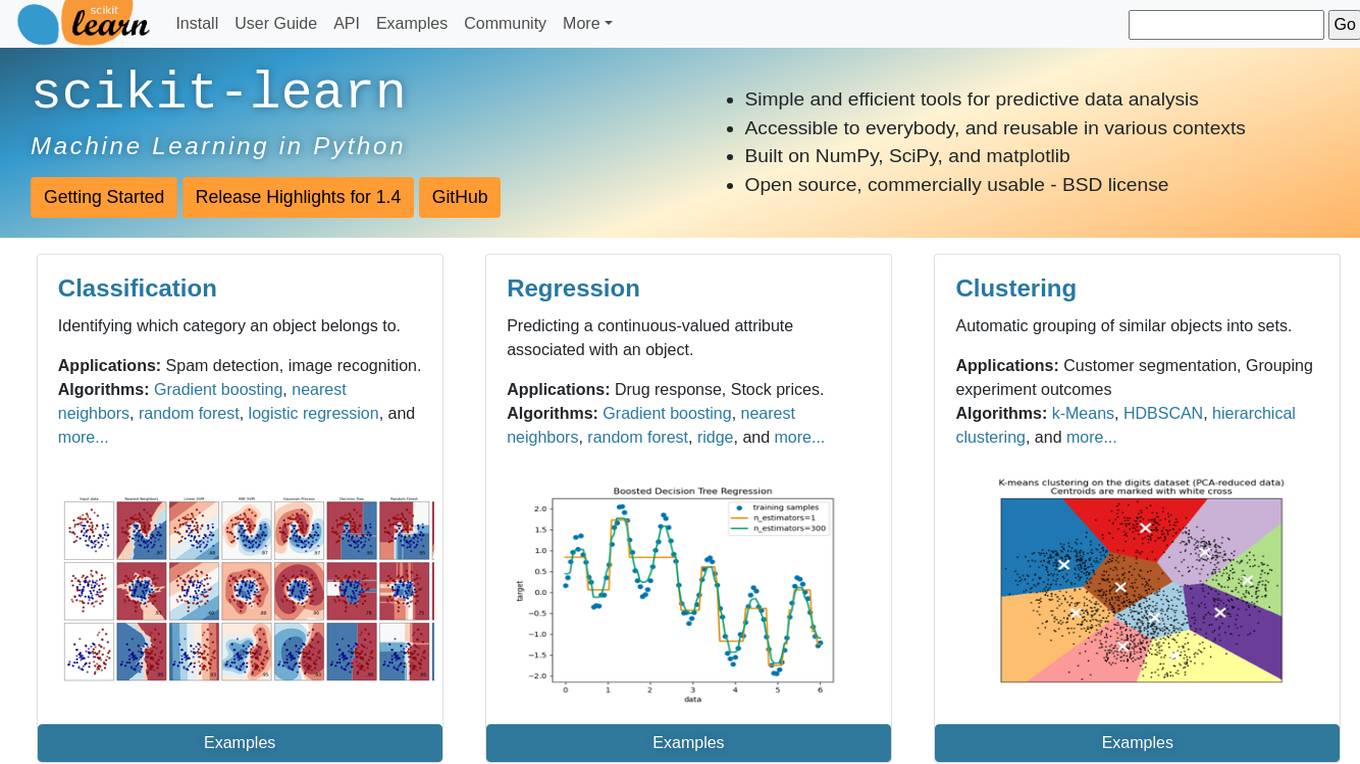
scikit-learn
Scikit-learn is a free software machine learning library for the Python programming language. It features various classification, regression and clustering algorithms including support vector machines, random forests, gradient boosting, k-means and DBSCAN, and is designed to interoperate with the Python numerical and scientific libraries NumPy and SciPy.
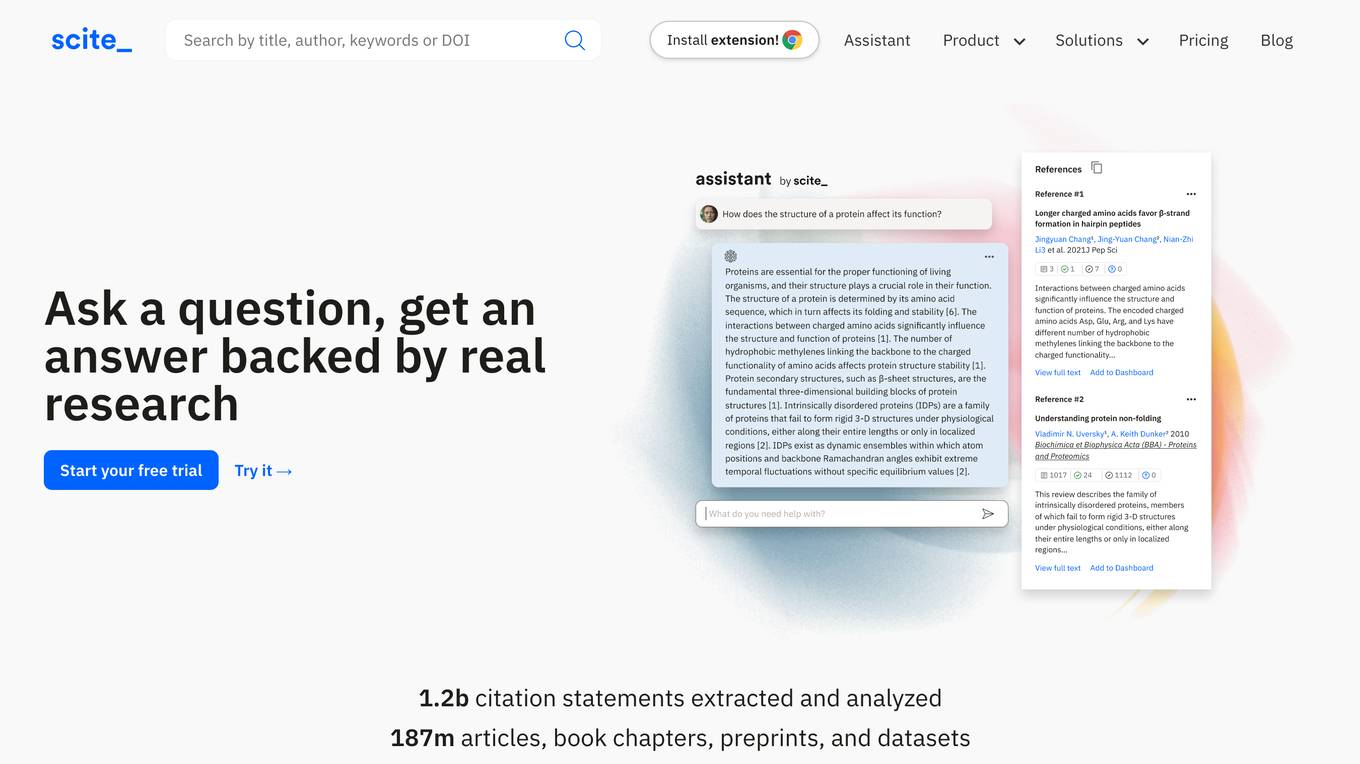
Scite
Scite is an award-winning platform for discovering and evaluating scientific articles via Smart Citations. Smart Citations allow users to see how a publication has been cited by providing the context of the citation and a classification describing whether it provides supporting or contrasting evidence for the cited claim.
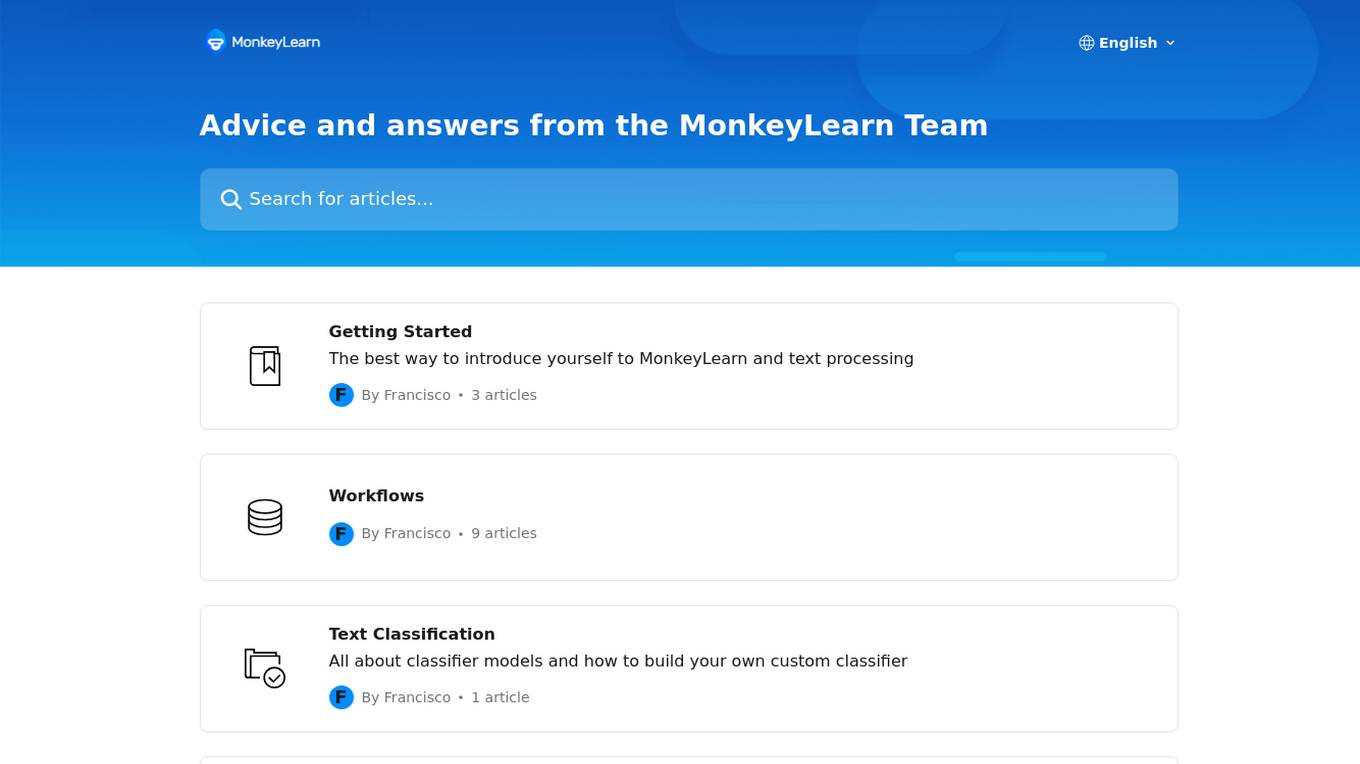
MonkeyLearn
MonkeyLearn is an AI tool that specializes in text processing. It offers a range of features for text classification, extraction, data analysis, and more. Users can build custom models, process data manually or automatically, and integrate the tool into their workflows. MonkeyLearn provides advanced settings for custom models and ensures user data security and privacy compliance.
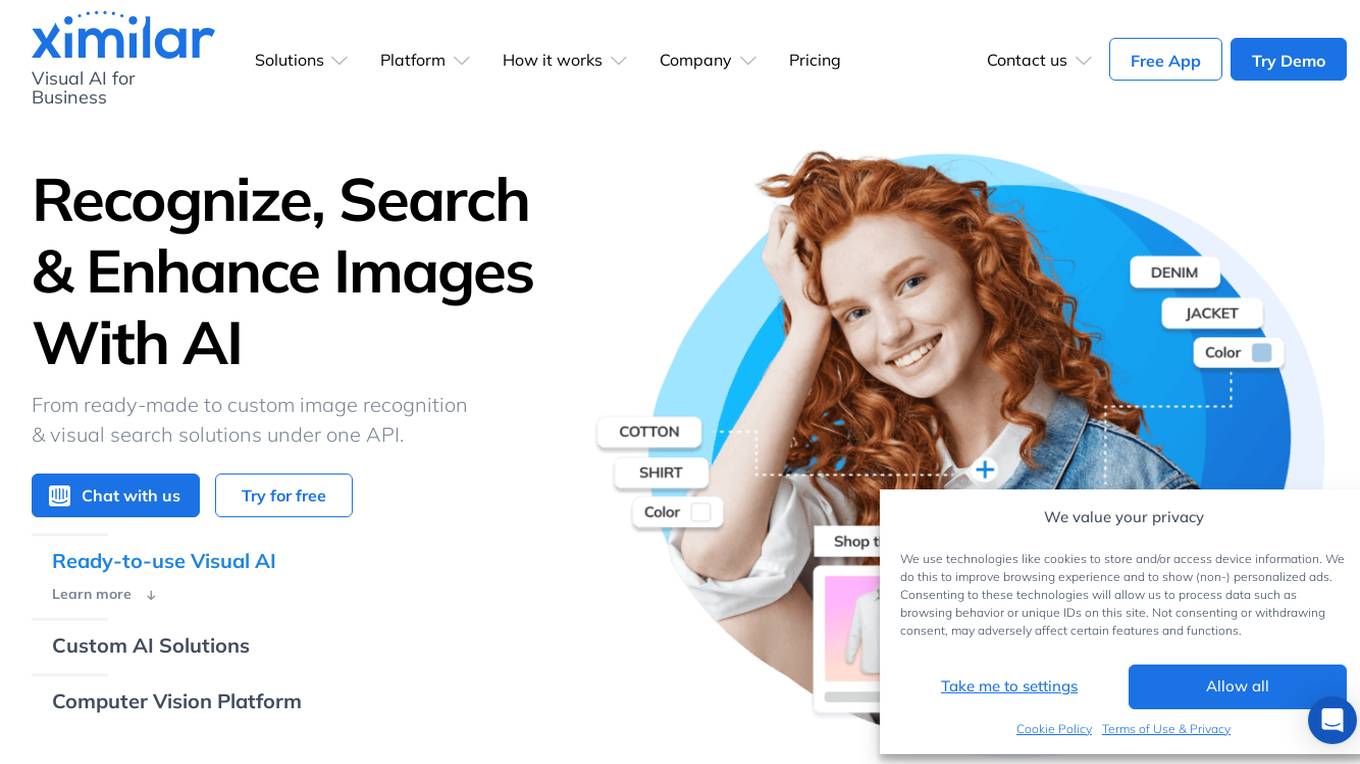
Ximilar Visual AI for Business
Ximilar Visual AI for Business is an AI tool that offers a comprehensive platform for image recognition and visual search solutions. It provides features such as image classification, regression, object detection, AI model combination, image annotation, and more. Users can easily build custom machine learning models without coding, access ready-to-use visual AI demos, and benefit from features like image upscaling, background removal, and color extraction. The platform caters to various industries including fashion, home decor, stock photos, collectibles, med & biotech, manufacturing, and real estate.
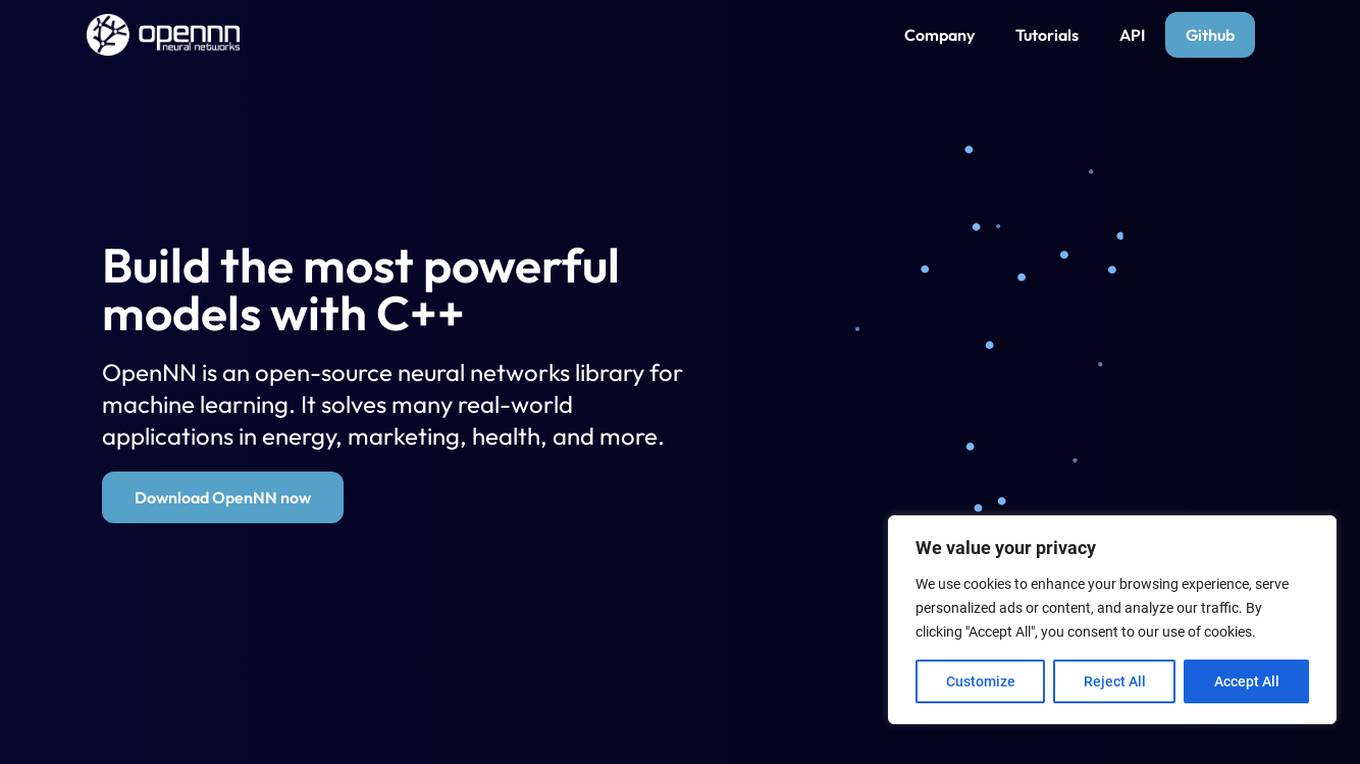
OpenNN
OpenNN is an open-source neural networks library for machine learning that solves real-world applications in energy, marketing, health, and more. It offers sophisticated algorithms for regression, classification, forecasting, and association tasks. OpenNN provides higher capacity for managing bigger data sets and faster training compared to TensorFlow and PyTorch. It is being developed by Artelnics, a consulting company specialized in artificial intelligence and big data. Neural Designer, a software tool developed from OpenNN, helps build neural network models without programming.
1 - Open Source AI Tools
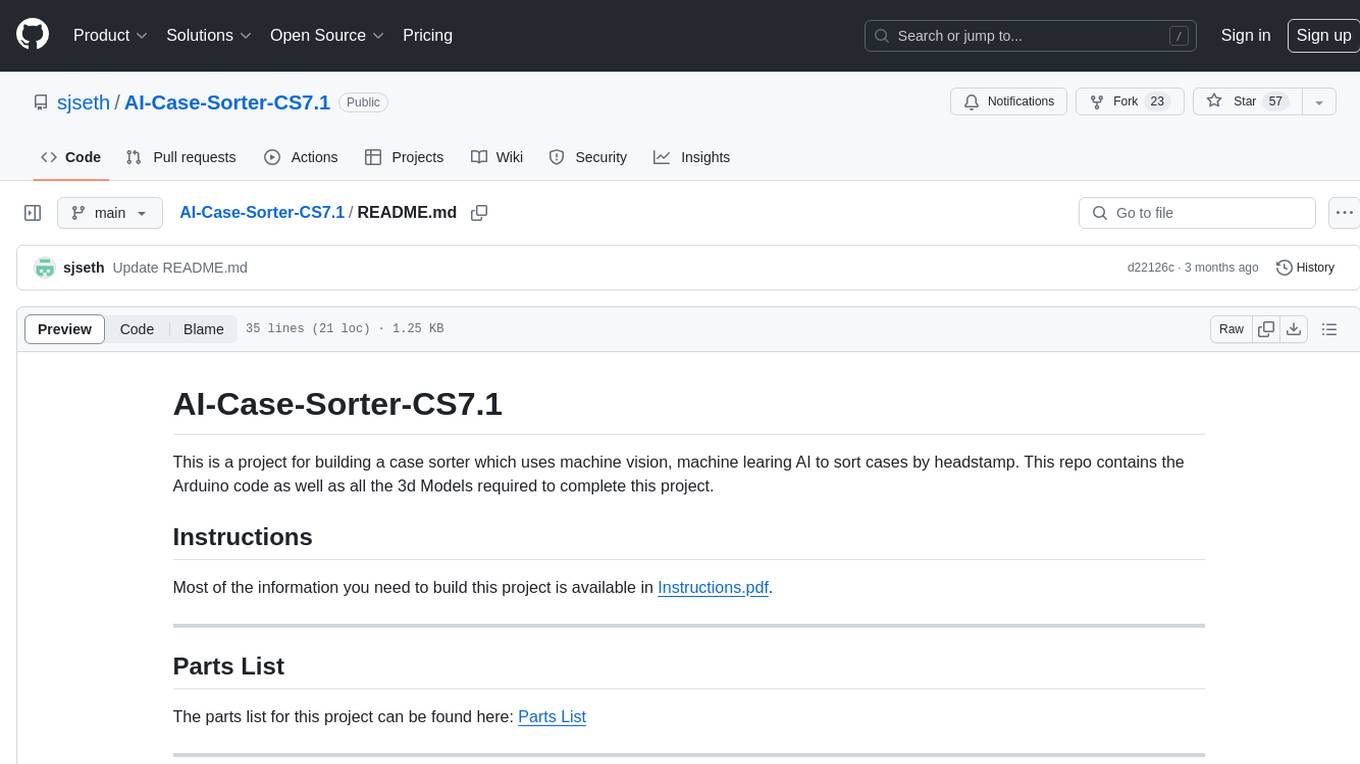
AI-Case-Sorter-CS7.1
AI-Case-Sorter-CS7.1 is a project focused on building a case sorter using machine vision and machine learning AI to sort cases by headstamp. The repository includes Arduino code and 3D models necessary for the project.
20 - OpenAI Gpts
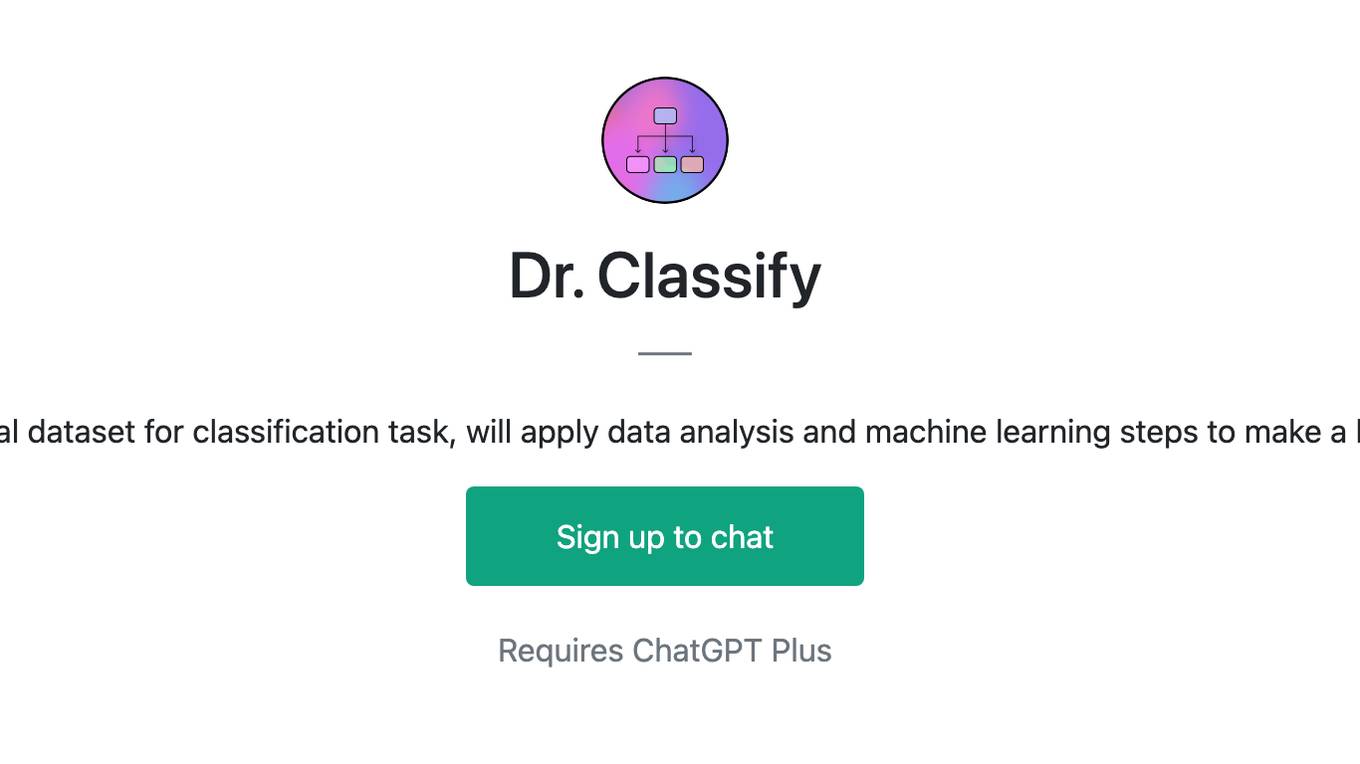
Dr. Classify
Just upload a numerical dataset for classification task, will apply data analysis and machine learning steps to make a best model possible.
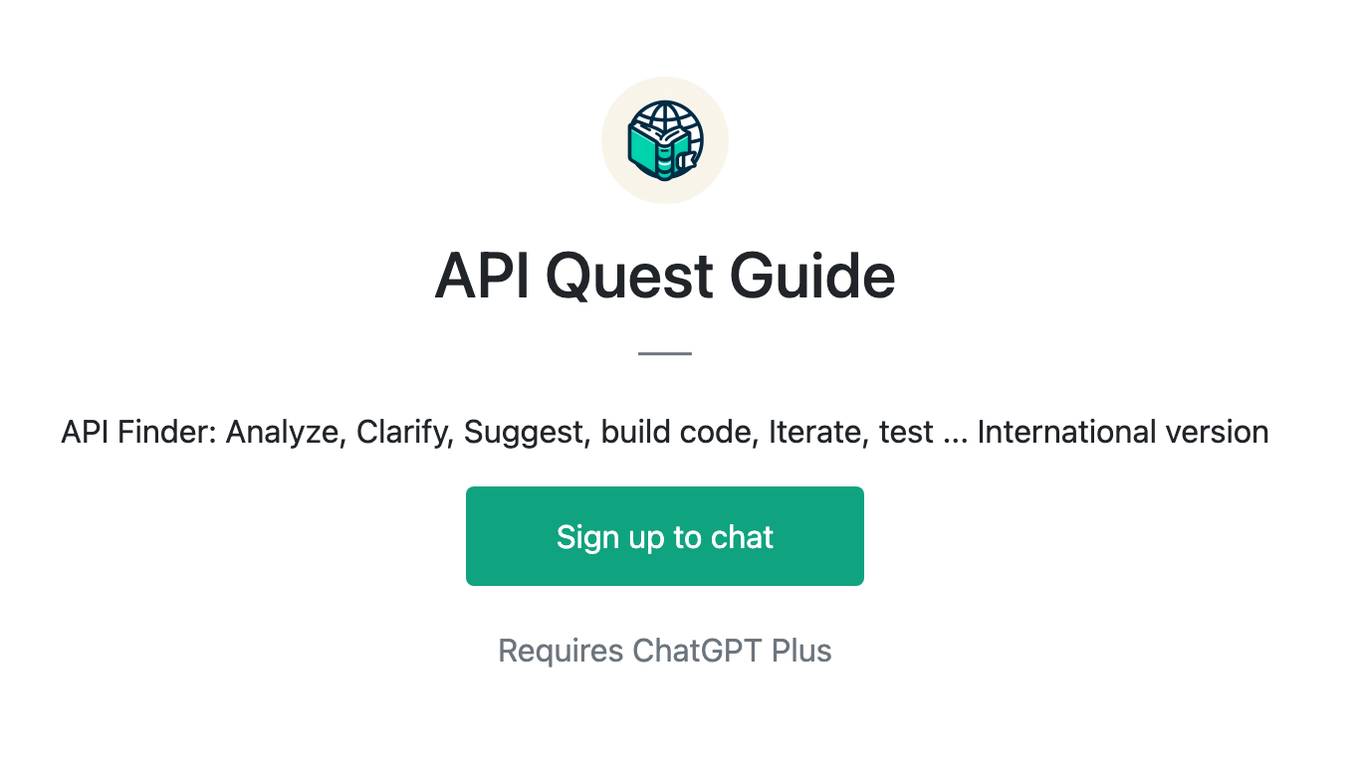
API Quest Guide
API Finder: Analyze, Clarify, Suggest, build code, Iterate, test ... International version
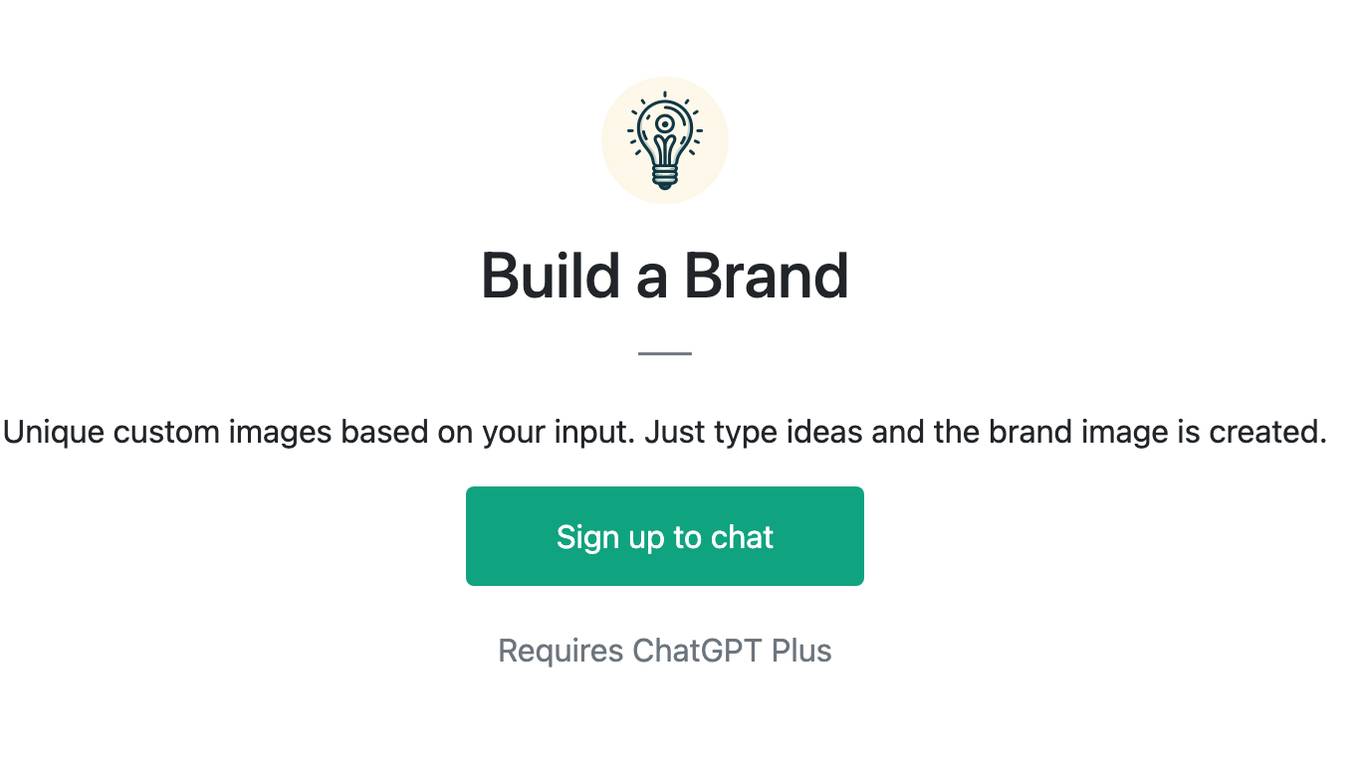
Build a Brand
Unique custom images based on your input. Just type ideas and the brand image is created.
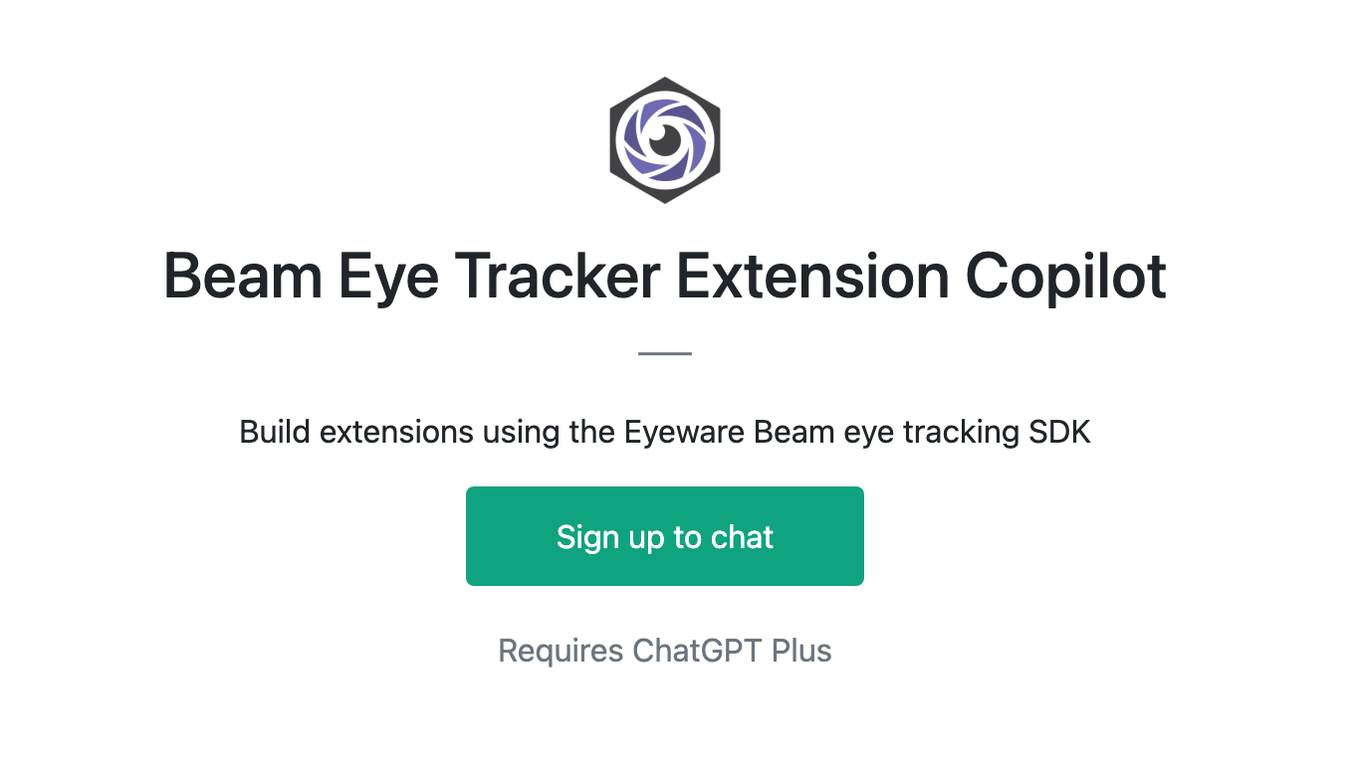
Beam Eye Tracker Extension Copilot
Build extensions using the Eyeware Beam eye tracking SDK

Business Model Canvas Strategist
Business Model Canvas Creator - Build and evaluate your business model

League Champion Builder GPT
Build your own League of Legends Style Champion with Abilities, Back Story and Splash Art
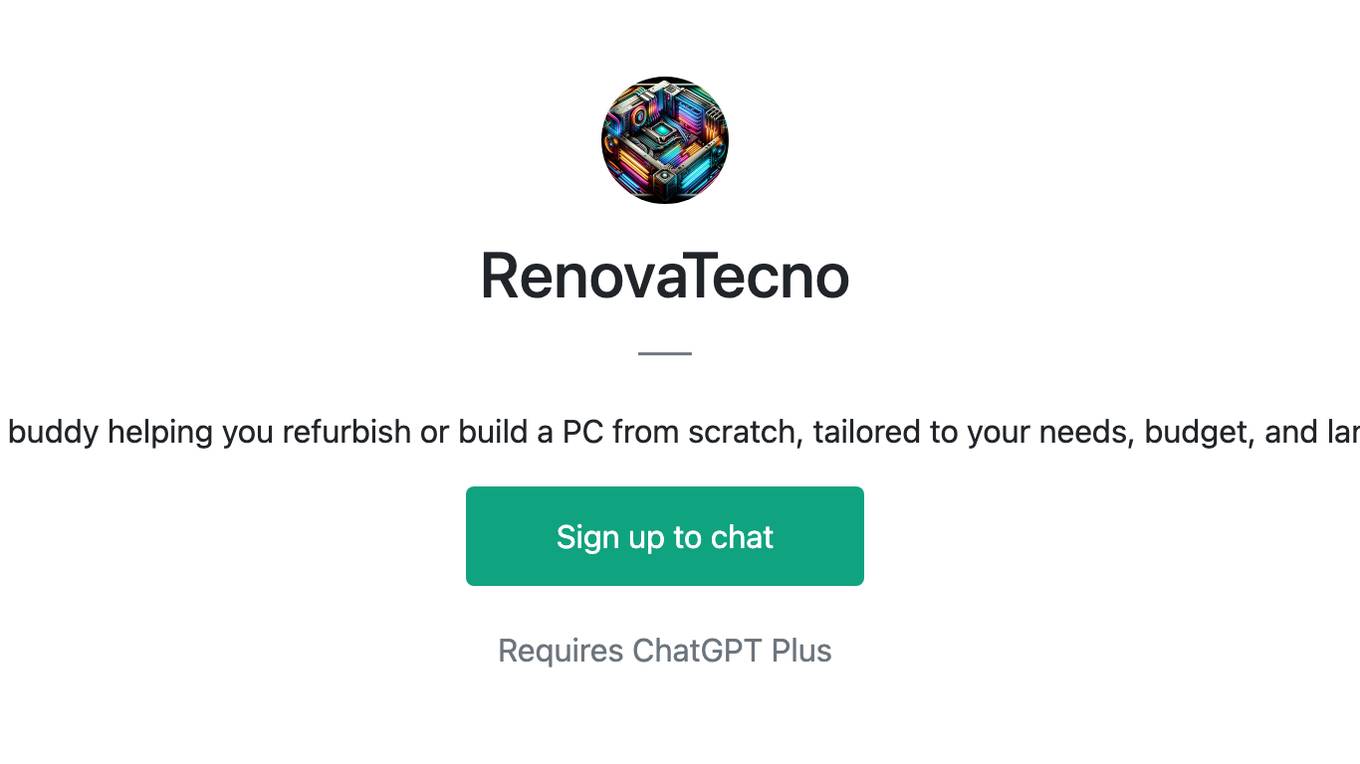
RenovaTecno
Your tech buddy helping you refurbish or build a PC from scratch, tailored to your needs, budget, and language.

Gradle Expert
Your expert in Gradle build configuration, offering clear, practical advice.
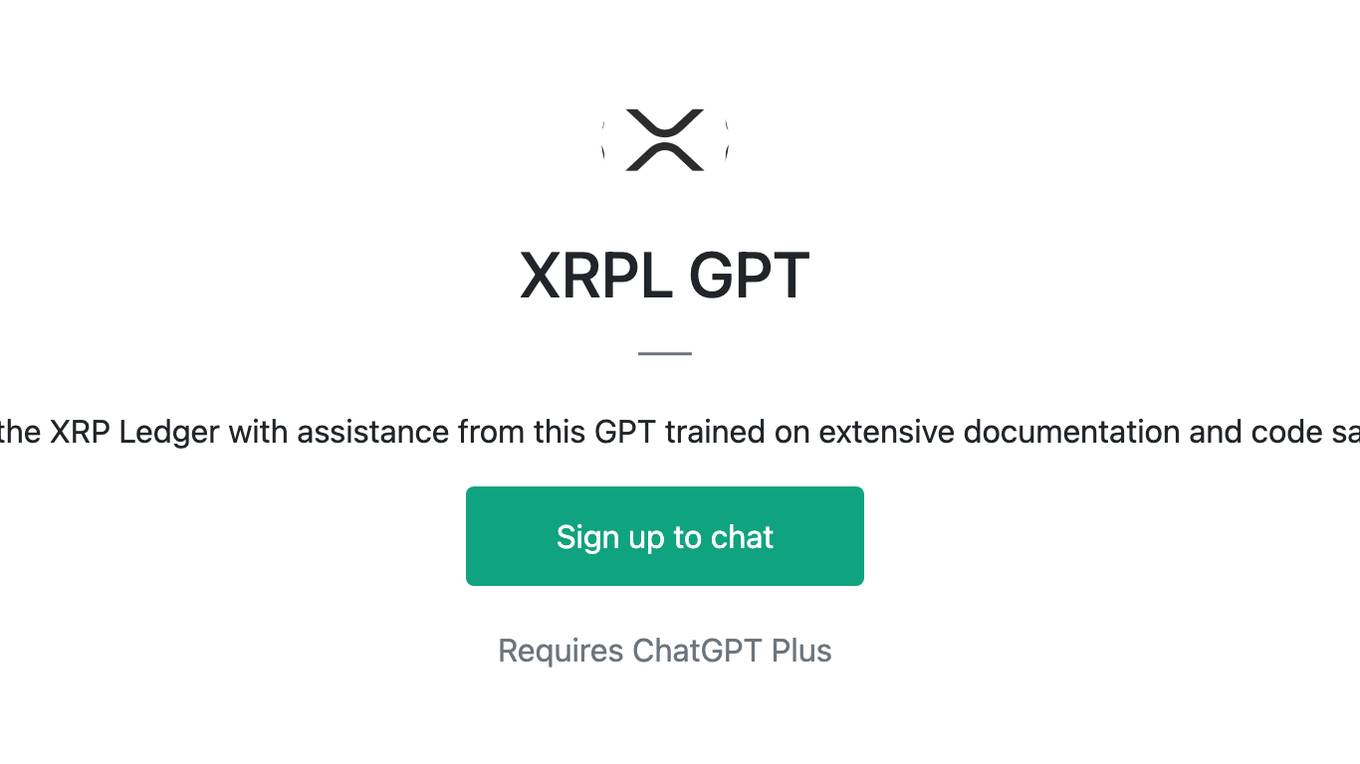
XRPL GPT
Build on the XRP Ledger with assistance from this GPT trained on extensive documentation and code samples.


